In this excerpt, Chavarría shares a story about what happened when the Major Devil played the starring role in the Passion of Christ.
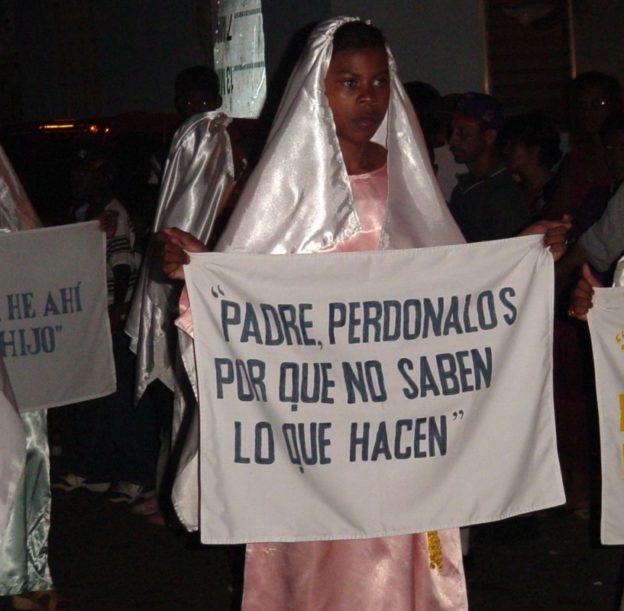


In this excerpt, Chavarría shares a story about what happened when the Major Devil played the starring role in the Passion of Christ.
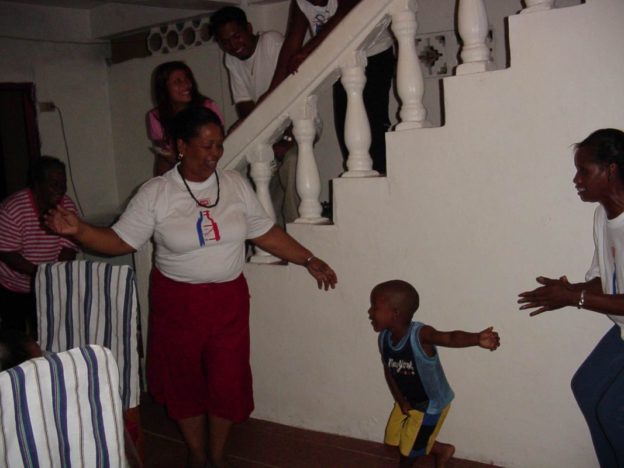
In this excerpt, Chavarría responds to the question, “One hundred years in the future when scholars are studying the Congo tradition in Portobelo, what are the most important things that they should know?”

In this excerpt, Chavarría discusses the way in which hierarchies of Congo Devils greet one another, how they are baptized within the tradition, and the importance of crossing one’s feet and “dancing” in the devil way.
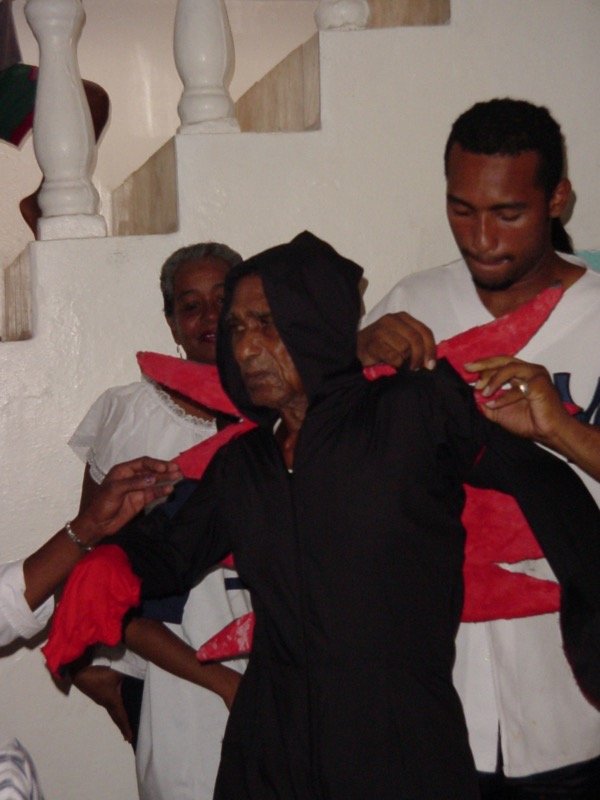
In this excerpt, Chavarría discusses his memory of the last time the renowned Celedonio Molinar performed as devil and how his mentor retired in 2003 after being honored at that year’s Festival de los Diablos.

In this excerpt, Chavarría shares cherished memories of his mentor, Celedonio Molinar, including seeing him “fly” from roof to roof as Major Devil. Chavarría also discusses important lessons and ritual practices that he learned from his mentor about performing the Major Devil role.
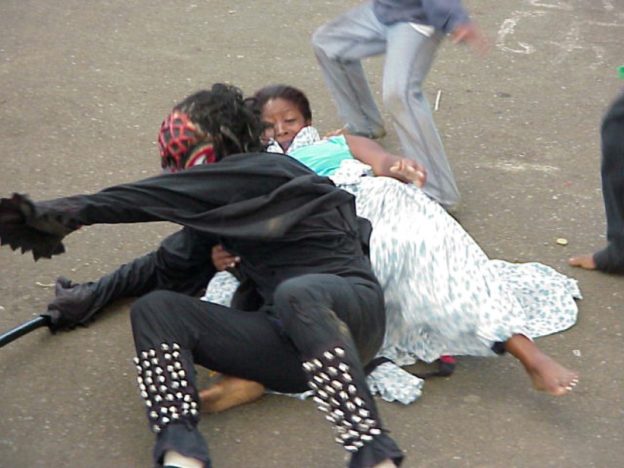
In this excerpt, Chavarría talks about the importance, for him, of playing the Devil character from “emotion” and his decision to break away from a particular ritual that marked his mentor’s embodiment of Major Devil.
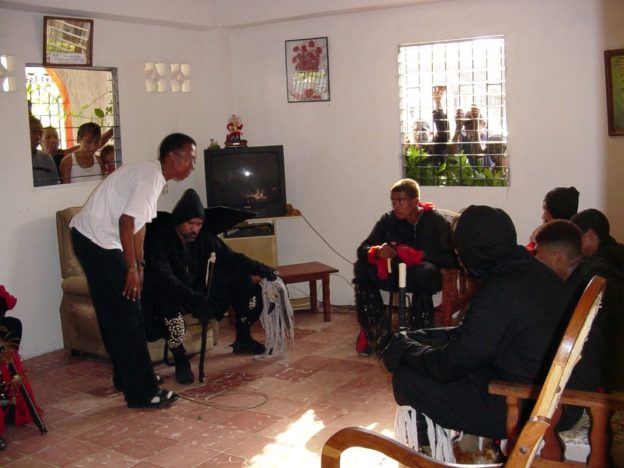
In this excerpt, Chavarría discusses the process by which he became Major Devil in the Congo tradition of Portobelo, Panama.
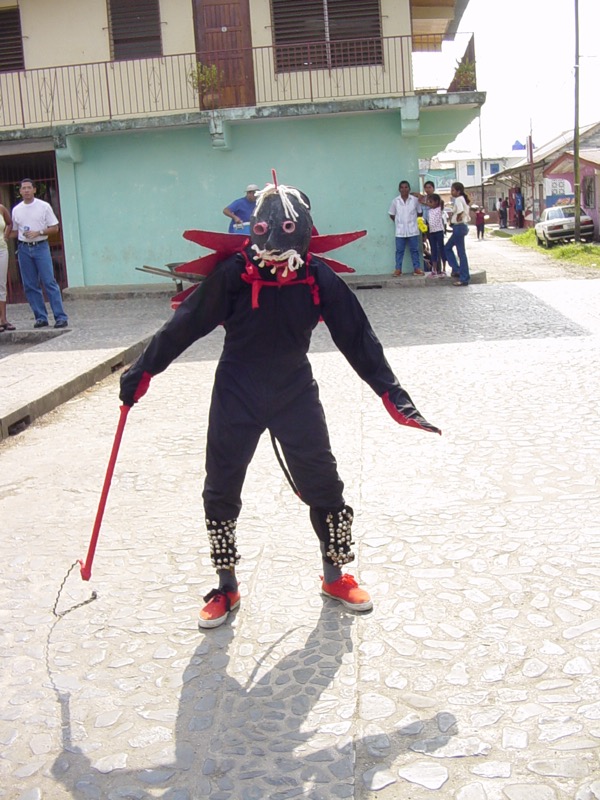
In this short excerpt, Molinar discusses his choice to come out as Major Devil each year even after training others to do so.
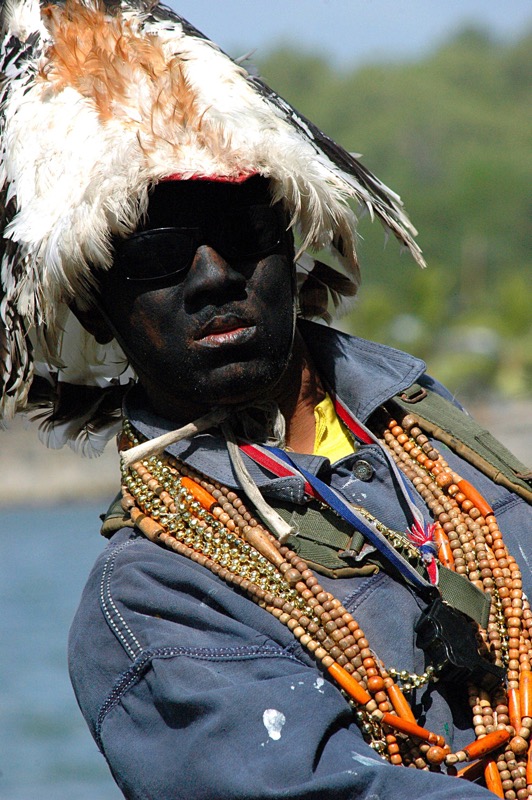
In this excerpt, Jiménez talks about the participation of other family members in the Congo tradition, including an older brother who has performed the role of Pajarito and a younger brother who has performed the role of devil. His father, Andrés, also performed in the role of priest in the Congo tradition and, like him, was trained in his role by Celedonio Molinar.
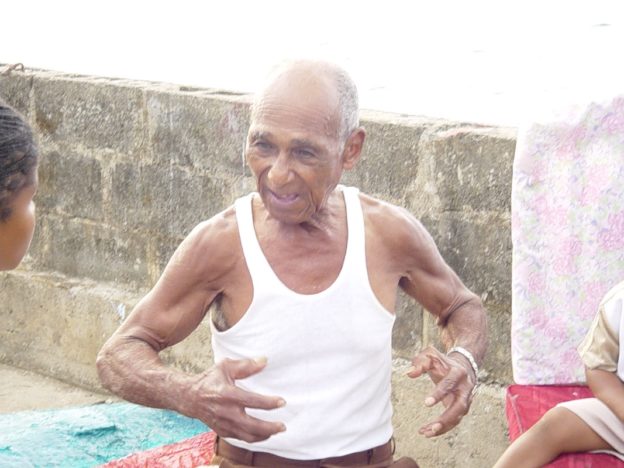
In this excerpt, Molinar explains the “pujido,” a sound that the devils within the Congo tradition of Panama make that is a part of their embodiment of the character. The literal translation of the word is “grunt,” but the effect is more than that. The sound amplifies internal energy and is done in response to both internal desires and external stimuli.